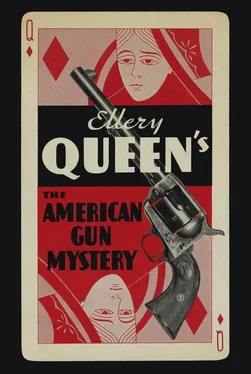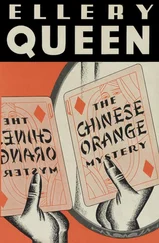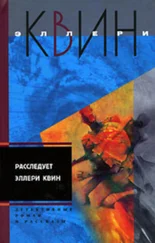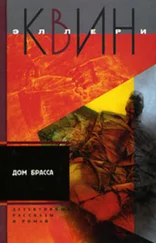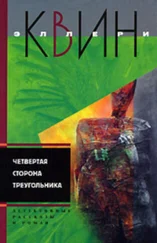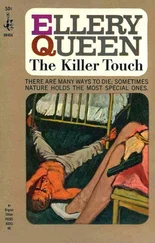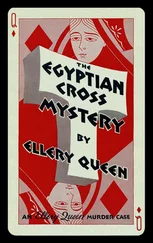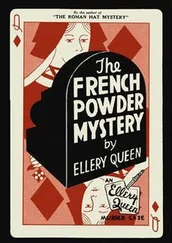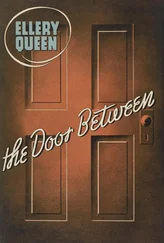Grant began to read: “‘Dear Bill: This is Benjy Miller, an old friend. Needs a job...’” There was more; Grant read the note through. Then he tossed it on his desk and said: “Have a seat, Miller.”
“Shore nice of you, Mr. Grant.” Miller sat down on the edge of a leather chair, cautiously.
“Cigar?” There was pity in Grant’s eyes; the man made a pitiable figure. Although his hair was sandy in color, untouched by gray, he was undoubtedly past middle age.
Miller’s mouth opened in a brown grin. “Now, that’s shore friendly, Mr. Grant. Don’t mind if I do.”
Grant tossed a cigar across the desk; Miller sniffed it and put it in the breast pocket of his mackinaw. Grant pressed a button on the side of his desk; the stenographer came in again. “Get Dan’l Boone in here, youngster. Hank Boone.”
She looked blank. “Who?”
“Boone, Boone. Sawed-off waddy who’s always drunk. You’ll find him jawin’ around somewhere.”
The girl went out, wiggling her hips; Grant stared after her appreciatively.
He chewed his frayed cigar. “Ever play the rodeo circuit, Miller?”
Miller’s shoulders shuddered. “No, sir! I been on the range all my life. Never did nothin’ fancy.”
“Bulldog?”
“Some. I used to be purty good in my young days, Mr. Grant.”
Wild Bill grunted. “Can you ride?”
The man flushed. “Listen here, Mr. Grant—”
“No offense meant,” drawled Grant. “Well, we’re full up, Miller, an’ this ain’t no remuda; don’t need no cattlepunchers...”
Miller said slowly: “So you ain’t got a job fer me?”
“Didn’t say that,” snapped Grant. “If yo’re Buck Horne’s friend, I’ll take you on. You can trail along with the posse aroun’ Buck t’night. Got any gear? Got yore hull?”
“Nos’r. I... I hocked most ev’rything in Tucson.”
“Uh-huh.” Grant squinted at his crumbling cigar; the door opened and a weazened little cowboy rolled in, his bowlegs wobbly and his bandana knot set at a rakish angle. “Oh, Dan’l, you loco son of a cross-eyed maverick! Come on in here.”
The little cowboy was very drunk. He cocked his Stetson forward and lurched to the desk. “Wil’ Bill — Wil’ Bill, I’m here at yore command... What the hell you want, Bill?”
“Yo’re tanked again, Dan’l.” Grant fixed him with a disapproving eye. “Dan’l, this is Benjy Miller — friend o’ Buck’s. Joinin’ the outfit. Show him the ropes — the stable, where he bunks, the arena...”
Boone’s bleared eyes took in the shabby visitor. “Friend o’ Buck’s? Pleased t’meet ya, Miller! Shome — some outfit we got here, feller. We—”
They passed out of Grant’s office. Grant grunted and, after a moment, put Buck Horne’s note in one of his pockets.
As they tramped down a long runway leading to the heart of the Colosseum, Boone tottering along, the man Miller said: “How come he calls you Dan’l? Thought I heard ’m say Hank to the girl.”
Boone guffawed. “Shmart — smart filly, ain’t she? Fresher’n new fodder! Well, I’ll tell ya, Miller. I wash — was born Hank, but the ole man, he says: ‘Maw, you kin call ’im Hank after yore mother’s secon’ husband’s brother, but by hell! I’m callin’ him Dan’l after the best damn Boone that ever drawed a bead on a red Injun!’ An’ Dan’l I been ever since. Haw, haw!”
“You sound like you come from the Northwest some’eres.”
The little cowboy nodded gravely. “Do I? Fact ish — is, my paw he punched cows in Wyoming. Ole Sam Hooker, he used to say: ‘Dan’l,’ he says, ‘don’t you never disgrace the fair name of yore native state,’ he says, ‘or me an’ yore paw we’ll come a-ha’ntin’ ya.’ I been trailed by ghoshts — ghosts ever since... Well, Miller ole hoss, here we are. Some range, hey?”
It was a huge amphitheatre, illuminated by thousands of harshly shedding bulbs. Its twenty thousand seats, arranged in an oval, were unoccupied. The arena, a long ellipse, was almost three times as long as it was wide, separated from the amphitheatre proper by a concrete wall, on the inner side of which ran the track, a fifteen-foot runner of tanbark. Inside this oval track lay the core of the arena, a bare expanse. It was here that steers were roped from running horses, wild broncos were “busted” by expert horsemen, and other rodeo events were staged. At each end of the oval — on east and west — a huge doorway led to the backstage of the arena, in one of which Miller and Boone stood. Other exits, many rigged with special chute gates for the equine events, dotted the concrete wall. High above — and yet not so high as that immensely distant roof of steel girders — the tiny figures of workmen crept along the tiers, manicuring the stadium for the evening’s performance, which would officially open the New York stand of Wild Bill Grant’s Rodeo.
In the hard-packed earth of the arena core a number of men in Western regalia lounged, smoking and talking.
Boone staggered forward into the arena, turning his woeful little eyes on his companion. “Reg’lar rodeo man, Miller?”
“Nope.”
“Down on yore luck, hey?”
“It’s hard times, cowboy.”
“Shore is! Well, you gladhand the gang an’ you’ll perk up. Got boys here come all the way from the Rio.”
Boone and his charge were greeted hilariously by the chapped and sombreroed men in the group. The ugly little fellow seemed a favorite with them; he was instantly the butt of friendly jeers and jibes. In the hubbub Miller was forgotten; he stood silently by, waiting.
“Uh — damn if I ain’t gone an’ fergot my manners!” cried Boone, after a moment. “Waddies, meet an ole bunkie o’ Buck Horne’s. Benjy Miller is his handle, an’ he’s joinin’ up with the outfit.”
Dozens of steady eyes took in the newcomer, and the talk and laughter died away. They surveyed his shabby clothes, his crooked heels, his frightfully mutilated face.
“Jock Ramsey,” said Boone soberly, introducing a tall dour cowboy with a cleft upper lip.
“Meetya.” They shook hands.
“Texas Joe Halliwell.” Halliwell nodded briefly and began to roll a cigaret. “Tex is God’s gift to the workin’ gals, Miller. Here’s Slim Hawes.” Hawes was a dumpy, jolly-faced cowboy with unsmiling eyes. “Lafe Brown. Shorty Downs.” Boone went on and on. Famous rodeo names, these; of men who followed the big circle with their well-worn gear, hopping from rodeo to rodeo, working for prize-money, paying their own expenses, most of them penniless, many scarred by the hazards of their profession.
There was an interval of silence. Then Lafe Brown, a powerful man in colorful costume, smiled and dipped his fingers into his pocket. “Roll yore own, Miller?” He proffered a little sack of tobacco.
Miller flushed. “Recken I will.” He accepted the “makin’s” and slowly, with unconscious facility, rolled a cigaret.
At once they broke into speech; Miller was accepted. Someone scratched a match on the thigh of his trousers and held it to Miller’s cigaret; he lit up and puffed silently away. They closed in about him and he merged with them, disappearing into the group.
“Now you take this here c’yote,” said Shorty Downs, a vast stalwart, as he crooked a horny finger at Boone. “You want to cinch tight when he’s bellyin’ aroun’. Steal the pants offen you, Dan’l will. His ole man was a horsethief.”
Miller smiled rather tremulously; they were trying to make him feel at home.
“How,” said Slim Hawes gravely, “how d’ya stand on the plumb earth-shakin’ question of the hackamore versus the snaffle-bit, Miller? Gotta know that first off. Hey?”
“Always used the hackamore in bustin’ raw broncs,” grinned Miller.
Читать дальше
